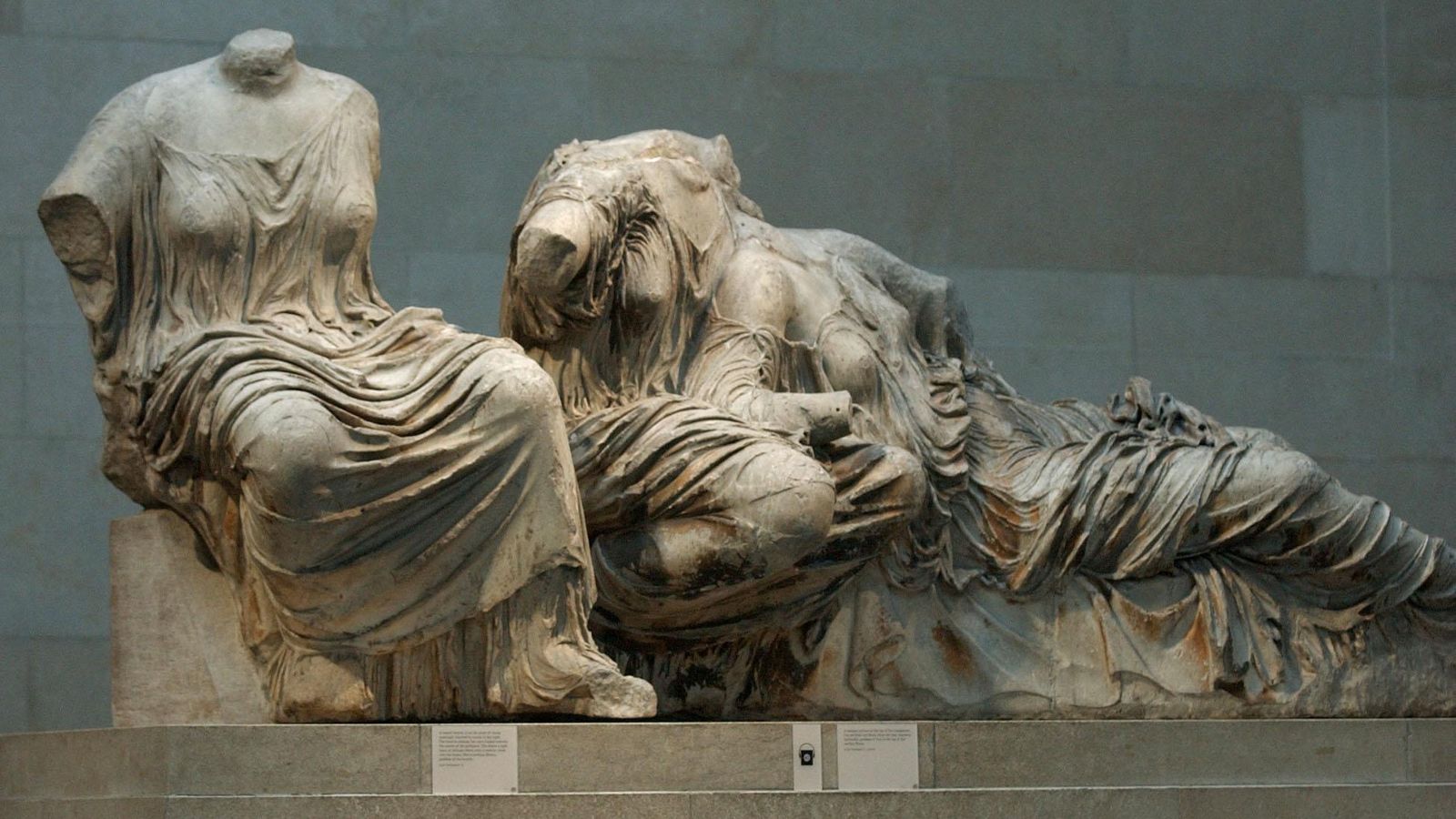Boris Johnson has told the Greek prime minister that the issue of the Parthenon sculptures was “one for the trustees of the British Museum” during talks in Downing Street.
At a meeting in Number 10 on Tuesday, Kyriakos Mitsotakis pressed Mr Johnson on the long-running row over the sculptures, also known as the “Elgin marbles”.
But the prime minister, despite telling his Greek counterpart he understood the “strength of feeling” in Greece on the issue, veered away from UK government responsibility in the 200-year-old dispute.
Following the leaders’ talks, a Downing Street spokesperson said: “Prime Minister Mitsotakis raised the issue of the Parthenon sculptures.
“The prime minister said that he understood the strength of feeling of the Greek people on this issue, but reiterated the UK’s longstanding position that this matter is one for the trustees of the British Museum.
“The leaders agreed that this issue in no way affects the strength of the UK-Greece partnership.”
The stance appeared to represent a shift from Mr Johnson, who as recently as March said it was the UK government’s “longstanding position” that the sculptures were “legally acquired” by the British ambassador to the Ottoman Empire, Lord Elgin, in the early 19th century and were now “legally owned” by the British Museum’s trustees.
North will be ‘short-changed’ by Boris Johnson’s rail plans, Conservative MP Philip Davies warns
Boris Johnson backs ban on MPs’ lobbying work in wake of Westminster sleaze row
HS2: Northern newspapers unite as part of backlash against Boris Johnson’s scaling back of rail projects
Earlier on Tuesday, Mr Johnson’s official spokesman had said the possession of the sculptures was “purely for the museum” and “not one for the UK government”.
The 17 figures were taken by Lord Elgin’s staff around 200 years ago and have been the subjects of a long dispute.
The Greek PM argues they were “stolen” from Athens. Prior to his visit to London, Mr Mitsotakis told the Daily Telegraph: “They belong in the Acropolis Museum and we need to discuss this issue in earnest.”
Before meeting Mr Johnson, he had also raised the prospect of loaning other treasures to the British Museum in return for the Parthenon sculptures.
Follow the Daily podcast on Apple Podcasts, Google Podcasts, Spotify, Spreaker
Outlining its position on the dispute, the British Museum’s website states that Lord Elgin’s transport of the sculptures to England happened “with the full knowledge and permission of the legal authorities of the day in both Athens and London”.
It adds: “The trustees’ policy and their willingness to consider loans to Athens has been made clear to the Greek government, but successive Greek governments have refused to consider borrowing or to acknowledge the trustees’ ownership of the Parthenon sculptures in their care.
“This has made any meaningful discussion on the issue virtually impossible.”
The Parthenon sculptures were made between 447BC and 432BC and decorated the Parthenon on the Acropolis in Athens.
Lord Elgin removed about half of the remaining sculptures from the ruins of the Parthenon between 1801 and 1805, before they entered the British Museum.






















